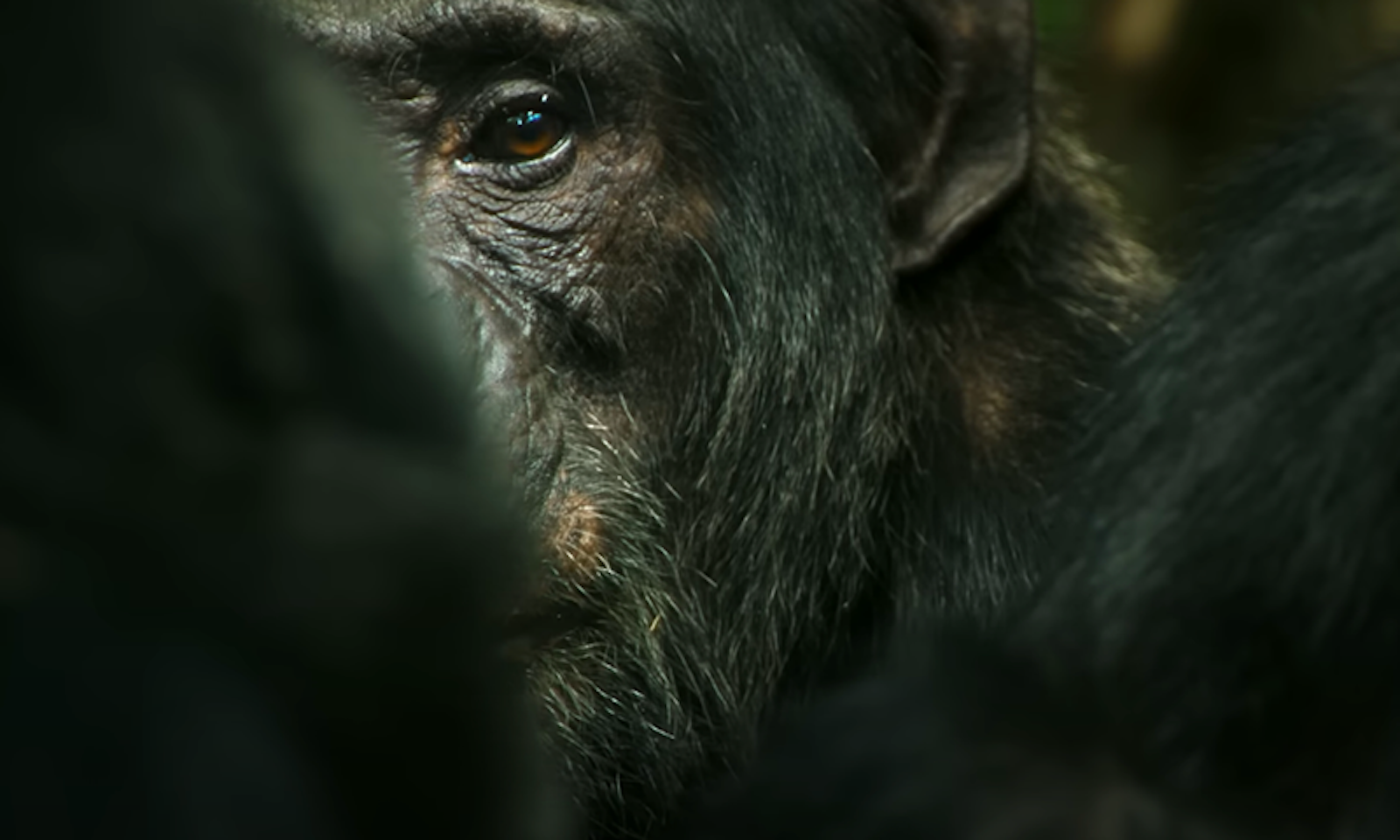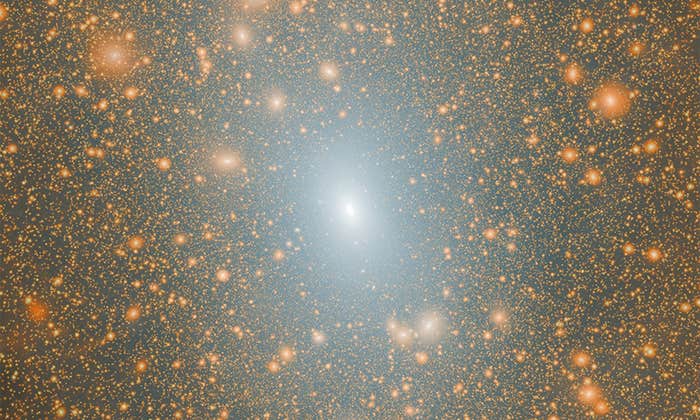Some years ago, David Watts was mingling with the wild chimpanzees of Uganda’s Kibale National Park, the Ngogo, the largest group of chimps known. Watts, an anthropologist at Yale University, has been studying them for decades. He was there advising and assisting the filming of the 2017 movie Rise of the Warrior Apes when, on one outing, he watched as a pair of agile chimps, high in the swaying trees above, tactically maneuvered and trapped a much smaller monkey trying to flee. Just 15 or so feet from where Watts was standing, the chimp began to rip its meaty prize apart, offering this arm and that leg to other chimps, as if breaking bread with friends at dinner.
How alike humans are to chimps—in the relationships we nurture, the way we think, and why we kill—seems to both excite and disturb Watts equally, as he tells Yale University interviewers. More recently, when he and his colleagues learned that something like a chimp civil war had broken out among the Ngogo, they got back in contact with Rise of the Warrior Apes’ director, James Reed, telling him, according to an interview with Netflix, “You won’t believe it, the Ngogo group has finally split. This is completely unprecedented. We have no idea what will happen now. Will they reunite? Will they go to war?” Reed went back to the forest to witness the showdown. The result is Chimp Empire, an engrossing look at chimpanzee society from within the troop.
“I remember suddenly being aware that the Ngogo chimps were all around,” Reed, who won an Oscar for directing My Octopus Teacher, said. “It’s like being on The Truman Show or something—you feel like you’re on a set, because you can’t quite believe they’re real. They’re so human, you know that they’re assessing you in the same way that you’re assessing them. You can’t quite believe that they accept you into their world.”
They’re so human. We evolved to sense some kinship with those who seem like us.
I experienced a similar state of disbelief that those animals were real as I watched the first of Chimp Empire’s four episodes. It was surreal how close the chimps allowed the camera operators to film. I’m a veteran viewer of David Attenborough’s nature documentaries—but this was another level of immersion. Chimp Empire is distinctively and startlingly intimate. “I was continually awestruck by the quality of the images,” Watts, who had qualms about bits of the series’ narrative, told Yale News. “I’d love to get access to some of their footage someday to analyze it for research purposes.”
Here’s Gus, a 14-year-old male. The camera closes in and lingers on his light brown face. The narrator, actor Mahershala Ali, informs us that Gus is in a tough spot. He is, dangerously, a social nobody, clinging to the bottom rungs of the hierarchy. At one point, we watch as he draws up the courage to groom a political upstart named Abrams who’s keen on challenging Jackson, the alpha. Abrams lets the kid have a go but—devastatingly for Gus’ social prospects—doesn’t return the favor. Gus is crushed, and it’s easy to see it in his eyes and in his face.
They’re so human. It’s a feeling Reed isn’t exactly wrong to have. We evolved to sense some kinship with those who seem like us. We can appreciate the obvious similarities between us and chimps in the way we hunt and share meat, and the way males attack outsiders, Watts says in a Yale University interview. “These things are characteristics of humans.” Yet researchers are also illuminating the less obvious similarities between our species that are much more complicated to observe: our shared neurobiology.
In a new study, Martijn van den Heuvel, a brain scientist at Utrecht University in The Netherlands, and his colleagues, show that there’s a lot of overlap in the structure of human and chimp neural networks responsible for sharper thinking skills. The researchers analyzed and compared MRI brain data and cognitive scores—based on species-specific tasks involving reasoning, processing speed, and problem solving—from a group of humans and chimps. Van den Heuvel’s team found that the chimps and humans who scored highly on cognitive tasks also showed strong connections among similar brain networks.
The researchers say this suggests our cognitive abilities trace back to brain structures that predate the common ancestor we share with chimpanzees, which lived 7 to 8 million years ago. Watching Chimp Empire stirs fellow feelings that make that phylogenetic chasm seem more like just a crease. ![]()
Lead image: Netflix / YouTube




























